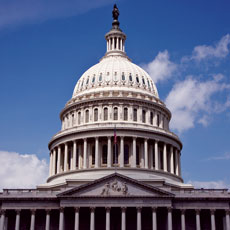
The Senate passed its $2 trillion coronavirus disease 2019 (COVID-19) relief package Wednesday night by a 96-0 vote.
H.R. 748, the “Coronavirus Aid, Relief, and Economic Security Act” or the “CARES Act,” now must be passed by the House, which isn’t in session, before it can be sent to President Trump.
Before the Senate vote Wednesday, Argentum President James Balda said the organization was pleased that the stimulus package included many of the priorities the senior living industry had been advocating for, “first and foremost, the establishment of an emergency fund to support healthcare providers, including public and for-profit senior living operators.”
The bill, he noted, includes $100 billion in grants for providers to prevent, prepare for and respond to COVID-19 and reimburse eligible healthcare providers for lost revenues directly attributed to coronavirus. It also provides for $500 billion in liquidity through loans, loan guarantees and other investments that would be available to eligible businesses, including senior living providers, Balda said.
“As we care for almost 1 million residents, many of whom have chronic conditions and are especially vulnerable to COVID-19, our industry remains critical to flattening the curve across the country,” he said.
American Seniors Housing Association President David Schless said members of Argentum and ASHA had “stepped up their advocacy efforts” over the past two weeks.
“They called and wrote to their congressional representatives and staffs, in many cases more than once, asking for much-needed government financial relief to offset the costs associated with COVID-19 preparedness and response,” he said. “These resources are a good start to helping our members meet this unprecedented challenge as they and their employees continue to serve our vulnerable seniors.”
Balda said advocacy efforts now will focus on the Health and Human Services and Treasury departments, “to ensure the needs of the senior living industry as a whole are fully considered under this emergency fund.”
The package passed by the Senate on Wednesday is not expected to be the final economic stimulus measure considered, he added. “We will continue our advocacy efforts accordingly, both at the federal level and among the states,” Balda said.
Among other components of the act, according to a summary:
- Money for the Geriatrics Workforce Enhancement Program, wherein grants, contracts and cooperative agreements will be awarded in part of programs that emphasize integration of geriatric care into existing service delivery locations and care across assisted living and nursing facilities as well as home- and community-based settings and other settings.
- $1 billion for the Defense Production Act to allow the Department of Defense to invest in manufacturing capabilities that are key to increasing the production rate of personal protective equipment and medical equipment to meet the demand of healthcare workers all across the nation.
- $65 million for housing for the elderly and people with disabilities for rental assistance, service coordinators and support services for the more than 114,000 affordable households for the elderly and more than 30,000 affordable households for low-income people with disabilities
- $2.8 million to provide staff treating veterans living at Armed Forces Retirement Homes with the personal protective equipment they need. The funding provides this and other necessary equipment and staffing support to help minimize the spread of coronavirus among residents.
- $955 million for the Administration for Community Living to support nutrition programs, home- and community-based services, support for family caregivers, and expand oversight and protections for seniors and individuals with disabilities.
- $200 million for the Centers for Medicare & Medicaid Services to assist nursing homes with infection control and support states’ efforts to prevent the spread of coronavirus in nursing homes
- $80 million for the Food and Drug Administration to continue the agency’s response to COVID-19. Funding will be used to continue efforts related to shortages of critical medicines, enforcement work on counterfeit and misbranded products, emergency use authorizations and pre- and post-market work on medical countermeasures, therapies, vaccines and research
- $300 million to support essential telework, communication needs, and salaries and benefits of federal employees in the Social Security Administration affected by office 12 closures. This funding also provides the resources necessary for processing disability and retirement workloads and backlogs when SSA offices reopen to the public.



